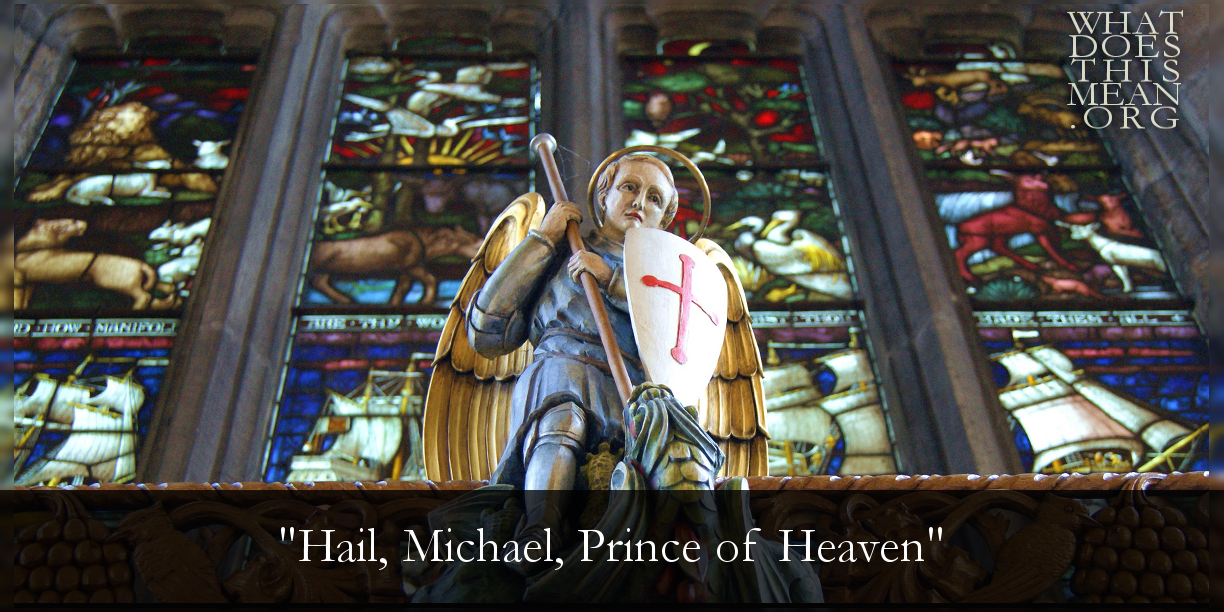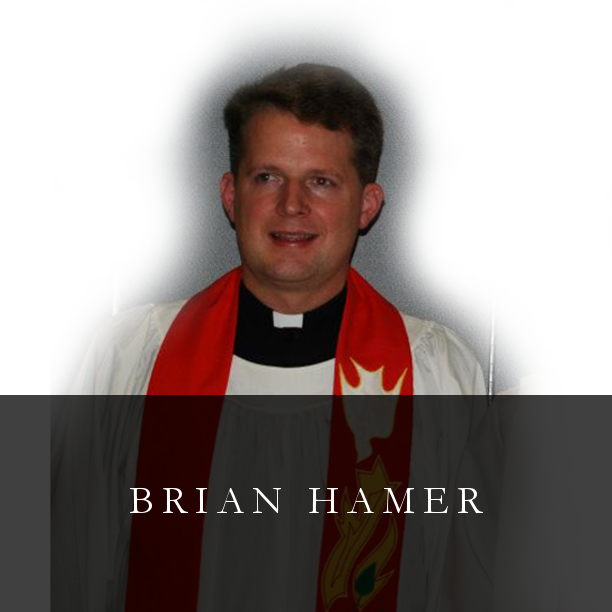The text of the cantata is a combination of direct quotes and paraphrases of Melanchthon’s only hymn. As with the hymn, the full text of the cantata is a perfect match for the historic Epistle (Revelation 12:7–12) and Gospel (St. Matthew 18:1–10) for Michaelmas. The melody or cantus firmus is the familiar tune, OLD HUNDRETH, originally associated with Psalm 100, but now perhaps best known as the tune for “Praise God from Whom All Blessings Flow.” In the following performance of the first movement (sung in German), praise and thanksgiving for the angel host is depicted with jubilant orchestral music (including trumpets and tympani), a sustained melody in the soprano line, and vocal flourishes in the other voices.
| Lord God, we all to Thee give praise, Thanksgivings meet to Thee we raise, That angel hosts Thou didst create / Around Thy glorious throne to wait. — TLH 254.1 |
| For he shall give his angels charge over thee, that they shall protect thee in all the ways thou goest. That their hands shall hold and guide thee, lest thou dash thy foot against a stone. |
| Invoking the thrice threefold company of the Heavenly Hosts, sing we: Fire unquenchable encircling the resplendent and life-giving Trinity, Ye six-winged Seraphim, and ye, the many-eyed Cherubim who soar aloft and are borne on pinions, Hymning in answering ranks the Thrice Holy, And ye, the Thrones, that unite with them in the first Hierarchy of Heaven, Praise, O praise the King of Glory, and transform our praises into the likeness of your heavenly song. Amen. Ye who perform the one Eternal Will, Ye orders of Dominions, Princedoms, Powers, Conform our wills to His, the Strong, the Holy, the Unchanging Lord. Amen. Ye ministers of mercy, messengers of grace, Virtues, who govern men. And myriad hosts of Archangels and Angels, succour and defend us. Hail, Michael, Prince of Heaven, and Vanquisher of Hell, Hail, Gabriel, Bringer of the Evangel, Sword of GOD, And Raphael, Spirit of Healing, Hail, Ariel, Strength of God, and Uriel, His Light, And Hail, ye countless hosts. Praise with us the One Holy, the One Holy Strong, the One Holy Immortal. Amen. Ye watchers and ye holy ones, Bright Seraphs, Cherubim and Thrones, Raise the glad strain— Alleluia! Cry out Dominions, Princedoms, Powers, Virtues, Archangels, Angels’ choirs, Alleluia. . . . |
Listen to the scene of St. Michael the Archangel with the biblical account of the slaying of the dragon in Revelation 12:7–12 in your mind. The principal theme is intoned in the lowest registers of the orchestra. It is powerful, thrusting and stentorian—truly the music of battle. The stormy scene briefly gives way to an offstage trumpet, which “steals on the ear the distant triumph song” (TLH 463.5), a picture of eschatological hope in the midst of the storm. The final gong depicts the final casting down of the dragon (see the artwork at the head of this article), a note of victory that seems to echo in eternity.
| Everlasting God, You have ordained and constituted the service of angels and men in a wonderful order. Mercifully grant that, as Your holy angels always serve and worship You in heaven, so by Your appointment they may also help and defend us here on earth. |



 RSS Feed
RSS Feed
